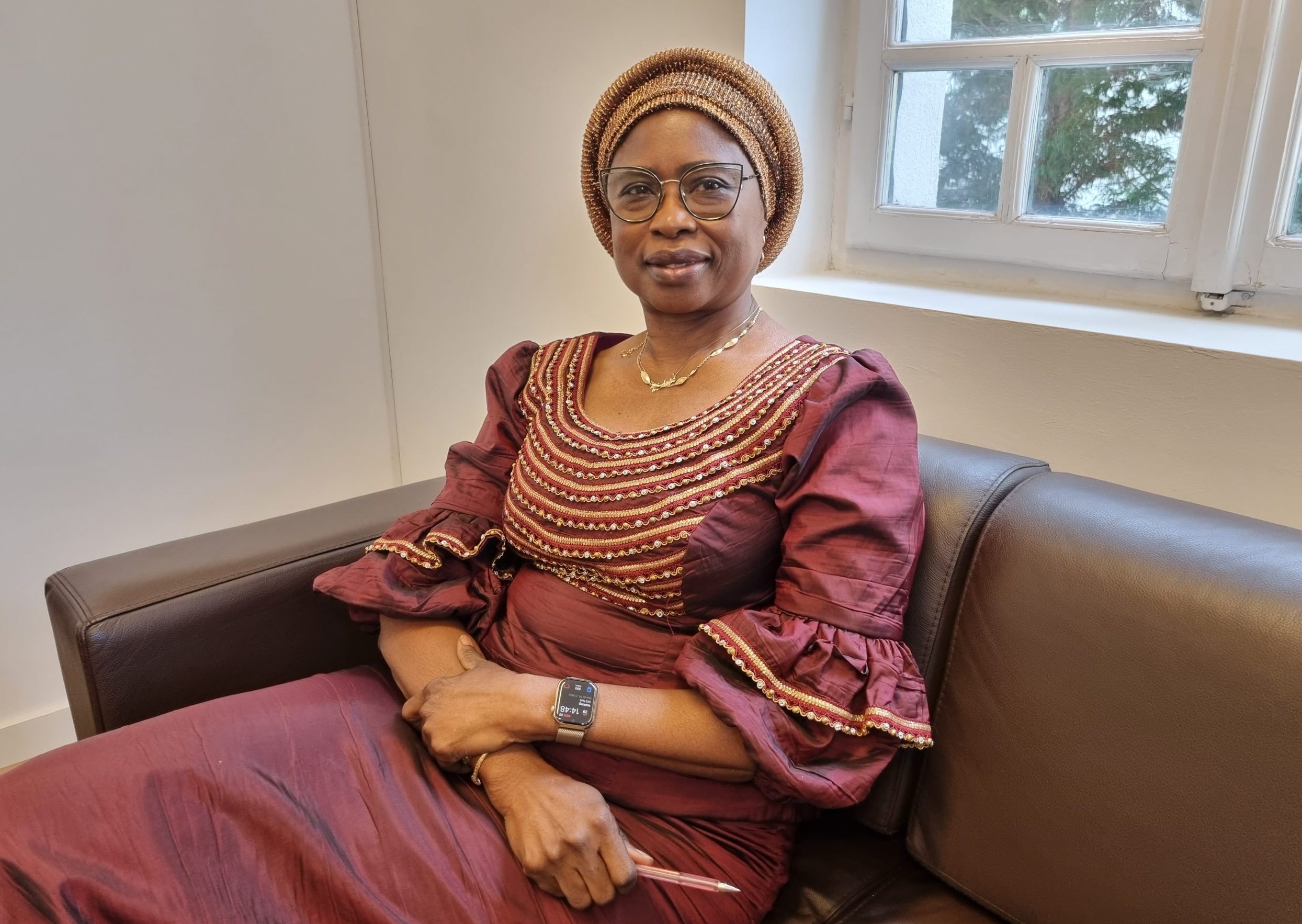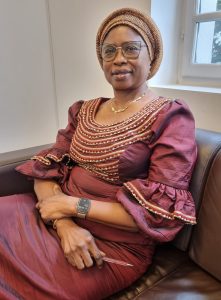According to a Hungarian government official, the international community must take action against the persecution of Christians.Continue reading

Interview with Dr. Modupe Enitan IRELE for Hungary Today/Ungarn Heute
– The third most populous democracy in the world, Nigeria, does have its embassy in Budapest, yet the average Hungarian knows very little about your country, and could hardly distinguish it from other African nations. What does the embassy do in order to make the country, its culture or economy known in Hungary?
This is something that we have noticed ourselves, Nigeria as a country is not known that much in Hungary. A factor in this is probably the education of Hungarians, how geography is taught in schools, how Africa as a continent is presented in the schools, and also how people who are not of Hungarian origin are perceived. The Embassy’s job, we have been here now for twenty years, is to present Nigeria through its cultural heritage.
I came here towards the end of the Covid pandemic in 2021, when nothing was happening. But last year we had a National Day event, we celebrated this among diplomats, but also with people from the local community. We have shown some Nigerian art-work and facilitated an exchange of ideas between the local Nigerian community and our guests. We also supported the Central Eastern European and West African Business Association’s (CEEWABA) economic forum organized to promote business between Hungary and Nigeria.
How large is the Nigerian community here in Hungary?
It is difficult to assess, but we would put it at about 4000. Many of them are students, majority of them fee-paying students, and a few are on scholarships. This is a joint scholarship program between the Nigerian and Hungarian government, the Stipendium Hungaricum program, and about a hundred are sponsored within that program.
So we try to create opportunities for us to meet, social situations, but also business situations. We had one last year, called CEEWABA (Central Eastern European and West African Business Association), which is a business community that works with the chamber of commerce not just here but it also covers Bosnia, Croatia and Serbia.
This is what we are doing to make Nigeria more visible. In Nigeria itself, my counterpart there is also doing a lot to make the Hungarian side more visible. There is a Hungarian-Nigerian Friends Association, which is just setting up its permanent offices in a very good location in Lagos.
Business-wise, we have been doing a lot of promoting of Nigerian exports here, and putting people together. I am very proud of the fact that progress is being made to create an aviation hub for cargo transportation between Central Europe with the hub being in Budapest Airport, and its other end in Lagos as the hub for distributing in the West-Africa region. I think this will help business grow between the two sides.
Nigeria’s annual GDP is expected to reach 450 bn USD, which is well over a double of that of Hungary. However, the trade between the countries moves between 30 to 50 million dollars, which is relatively insignificant as compared to even smaller economies. What is causing this lack of economic cooperation, and what progress has been made in recent years?
I could not agree with you more. Business and trade between the two countries is practically non-existent. Its not that there is no opportunity. But this has not been tapped. Hungary has been very much preoccupied with its business within the EU, and has not really focused on Africa.
The general view of not wanting migrants to come in also has colored the view of what can be done. If you do not have an open perspective towards other countries, especially people who look different from you, and there is suspicion, things become more difficult. I always say that you do business with friends. One is not so comfortable doing business with people that one does not know. The truth is that currently Hungarians do not know Africans, they do not know Nigerians.
There are only eight African countries that have their embassies here. This also makes it more difficult for them (to do business). The visa policies are not the friendliest either. These are things that have a direct impact on the ability to promote trade. There are a lot of opportunities, but Hungary remains a very well-kept secret.
There is a lot that could be done: goods, cultural assets, services, from our part oil and gas. Nigeria is rich practically in everything. You have got minerals, lithium, coco, gold, semi- precious minerals, bitumen, etc. Hungary is well known for its expertise in alternative road construction materials. They use a lot of bitumen, and Nigeria is one of the largest exporters. If you take China’s example, 15-20 years ago it was not doing much business in our region, but now it has overtaken America, in terms of its trade and economic activities in Nigeria.
Once you have direct routes to move goods, things speed up. But right now we do not have these between Central Europe and West Africa, we have to pass through other countries to get here. And that also complicates things.

Nigerian Ambassador, Photo: Hungary Today
– You have had elections recently, where do you expect to have the most tangible shift in the country’s politics or economy?
I am not sure that there is likely to be a change – the ruling party has retained its position by producing the new President. After 8 years of APC under President Muhammadu Buhari, the next administration will be led by President-elect, Bola Ahmed Tinubu of the same party. They will continue to work to attract more businesses to Nigeria, open up more channels for investment. Instead of merely importing goods, Nigeria wants to create and add value to her own goods and export them.
One of those areas are agriculture, there is already a strong trade of agricultural products between Nigeria and Hungary, it is one of the sectors that is already doing well. We are also seeing the establishment of an assembly manufacturing facility for the Hungarian light aircraft manufacturer Magnus Aircraft in Nigeria, the talks are in an advanced phase. So there may not be a major shift, but there is definitely opportunity.
– The Hungarian public is increasingly sensitive to news about the fate of Christians world-wide. Nigeria has unfortunately set a negative record for the number of Christians killed annually, with some 4 to 5 thousand reported every year. Is the new government going to tackle this problem more proactively? Did this major problem figure in the election campaign at all?
In the country everyone is allowed to worship as they please. All the major Christian or Muslim holidays are preserved and respected. There are also many mixed, Christian-Muslim families in the country. So at a national level there is no problem. At local levels you can indeed have skirmishes. There have been fights between Muslims and Christian citizens in the North, where there have been some attacks against churches. There have also been attacks against churches in certain areas in the South-West. But this should not be taken as a national situation where Christians are being regularly attacked while not being able to worship. There are localized and infrequent attacks only, but there is no such anti-Christian policy on the national level. And the two must not be confused.
– It is the government’s duty to protect its citizens though. And the impression is that there is a pervasive narrative among segments of society that leads to physical attacks. How does the government try to tackle the narrative of religious fundamentalism that leads communities to turn against each other?
I do not think there is such narrative, there are things that the foreign press likes to pick up on and report it their way. For example, the terror group Boko Haram is an insurgent group and they have their causes they are fighting for. The government has come out and denounced it and spent money to fight it. Is the government 100% successful? Obviously not. But does that mean that this is something that the government is not working against? To blame the government for all this would be inappropriate.
This is not to say that there are no tension, but these are not based around what the federal government stands for. Nigeria has 200 million people. We have 300 or so ethnic groups, we have 250 mutually unintelligible languages. Within all this we have fundamentalist Muslims, we have more mainstream Muslims, we have Catholics, Anglicans, Evangelicals.
But even moving from one region of the country to another you do not get the impression that you would be prevented from worshiping the way you like. The capital of the country, Abuja, has mostly a Northern (Muslim) influence. But churches are everywhere. You can get up and go to any church you like, and there are also people who do not practice either of these two religions. What I want to emphasize is that there are Nigerian people who may have religious intolerance. They contribute to and instigate the tension. However, this is not the federal government’s stance.
– The government funded Hungary Helps program has helped Nigerian Christian communities to rebuild their lives, such as in the town of Owo after terrorist attacks. Is this help welcome in the country?
I do not see why it would not be appreciated. Unless it comes with conditions and certain statements. If there is humanitarian assistance, I am sure it would be very much appreciated. No country wants a situation where the people are killed, for whatever reason.
– The Nigerian tourism industry is worth some 3bn USD, yet very few Hungarian tourists venture out to visit the country. Equally, Nigerian tourists, of whom there are many in Europe, prefer to visit the UK or France. What could the Hungarian tourism sector do better to attract more visitors from your country? What makes Nigerians tick when choosing a destination?
Nigerians travel a lot, they are very adventurous people. Yet Hungary does not have a very friendly visa policy. Nigerians, despite what some might say, just want to travel, spend money, and then go home. When you come to Nigeria, as soon as you step out at the airport, you can feel this energy. People there do not sit and wait for something to happen, they are constantly on the move.
From the Hungarian side I think the problem is that they do not learn enough about Africa in schools. Even if you look around in the country, visually, there is very little diversity. We should start knowing each other, and that might generate interest in visiting the other’s country. There was a period, for instance, when Hungary was a destination for Nigerian weddings. Couples would come, get married in one of the castles here, then they were off again.

Beach in Lagos. Photo: Pixabay
– Finally, Nigerian students are studying in Hungarian universities, how could Hungary contribute even more to educating the next generation of your citizens?
Dr. Orsolya Pacsay-Tomassich, State Secretary for the Hungarian Diplomatic Academy and the Stipendium Hungaricum Programme, has presented a very good program for interaction between our students, even after they have finished their studies. She encouraged former alumni to develop these contacts, which I think is an important initiative.
We had, for instance, a science student who studied here in Hungary, and then moved to the U.S. who said that the scientific equipment she used here was only just being introduced in America. Her American professor did not know how to use it, so she was the one who showed him. She has become very successful, and is on the board of several institutions, and has become a driving force of a co-operation between Hungarian and American universities. These are the things that we are looking for. Such input from past alumni is crucial in intercultural co-operation.
Featured Photo: Hungary Today